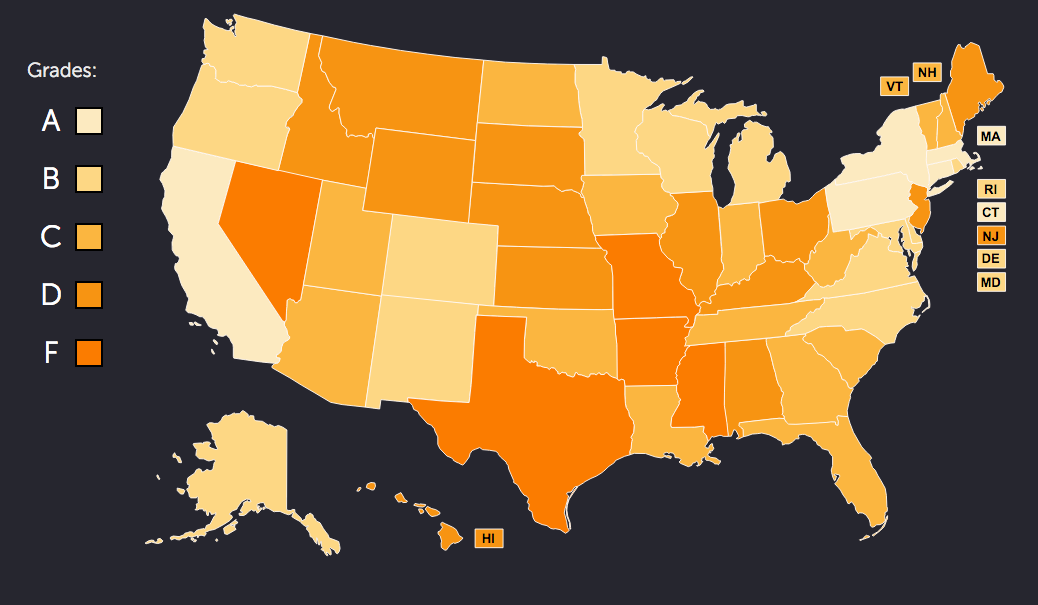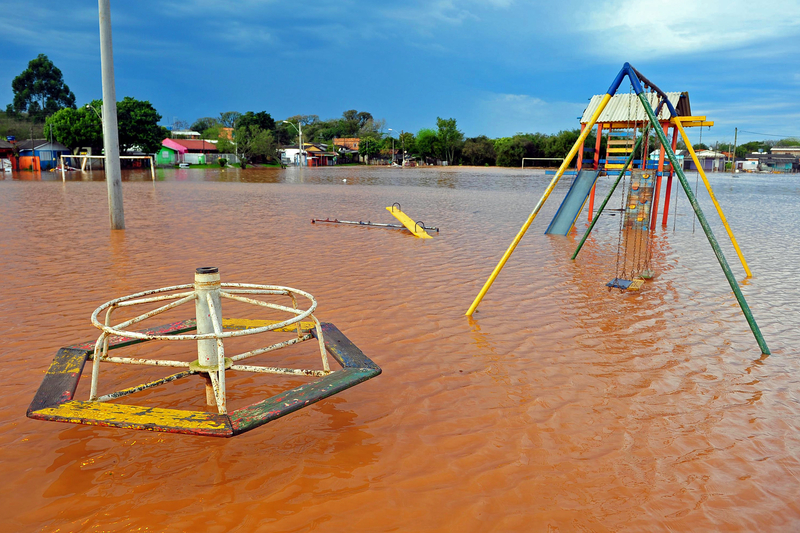
Photo: Screen-Shot-2015-12-23-at-11.39.03
Many US cities unprepared for risks from climate change
23 December 2015
by Tom Teodorczuk
Many US cities are unprepared to meet the increasing risks posed by extreme climate shocks according to a new report.
States at Risk: America’s Preparedness Report Card, a new report prepared by the States at Risk Project, a collaboration between ICF International and Climate Central, is the first ever quantitative assessment evaluating how prepared the 50 US states are to face risks posed by changing levels of extreme heat, drought, wildfires, inland flooding and coastal flooding linked to climate change.
The report provides a grade to each state based on the unique profile of threats faced by the region. Grades are based on both the magnitude of the current and future threat and the action states have taken to prepare for them relative to other states.
States at Risk concluded that Florida, Texas, and California were the most at risk states. Florida ranked first for both inland and coastal flooding threats and second in terms of extreme heat while Texas came first in regards to threats posed by extreme heat, drought and wildfire.
The report found that only 14 percent of US states are taking strong action to prepare for extreme heat risks. More than half of all states assessed have taken no actions to address future climate-related inland flooding risks.
The most prepared states in terms of taking action were Alaska, Connecticut, Massachusetts, Maryland, New York and Pennsylvania. The five states with the lowest grades were Arkansas, Missouri, Mississippi. Nevada and Texas. Arkansas earned three F grades and a D with the southern state taking fewer actions to prepare for wildfires than any state studied despite having more than 1.3 million residents living in areas with an elevated wildfire risk.
Mark Begich, until recently a former Senator from Alaska and a previous mayor of Anchorage, told Cities Today: “Local governments in urban areas have a huge role to play in the planning, zoning and building code components that can direct and prepare a city to withstand shocks.”
“If you go back to a decade and a half when climate issues were first starting to be talked about, it was mayors who jumped into the fray because of their concern about infrastructure and changing water levels and temperature levels. How they develop communities is an important part for cities to form rapid responses to move faster and become more innovative in their approaches.”
He added: “This is the kind of report that can help guide public policy on the local level and federal level on what you do long-term to prepare for these type of issues that will occur.”
Among the solutions proposed in the report are for cities to strengthen building codes and ease property restrictions and for the government to incentivise preparation of regions’ coastal management plans and climate adaptation plans.
Steve Ellis, Vice President, Taxpayers for Common Sense, called for a reform in disaster relief programme funding. He said: “The federal share of disaster costs has been climbing dramatically. What incentive is there for states to invest in reducing risk? Americans are big-hearted but we cannot afford to be soft-headed. Restructuring programmes for a sliding scale in disaster relief would trigger greater investment at a state and local level.”













